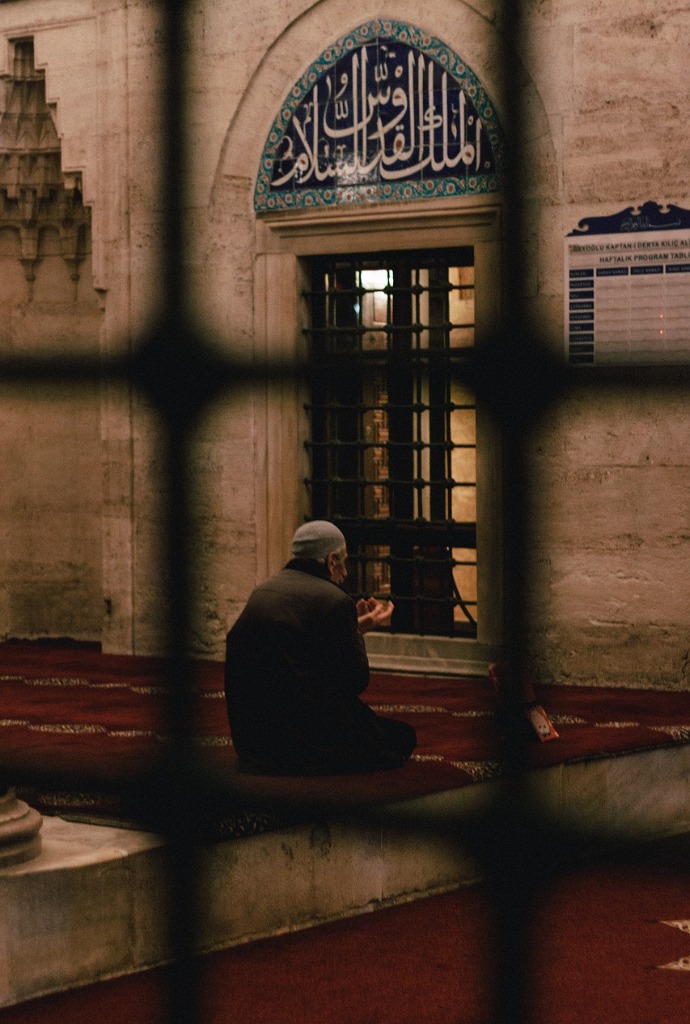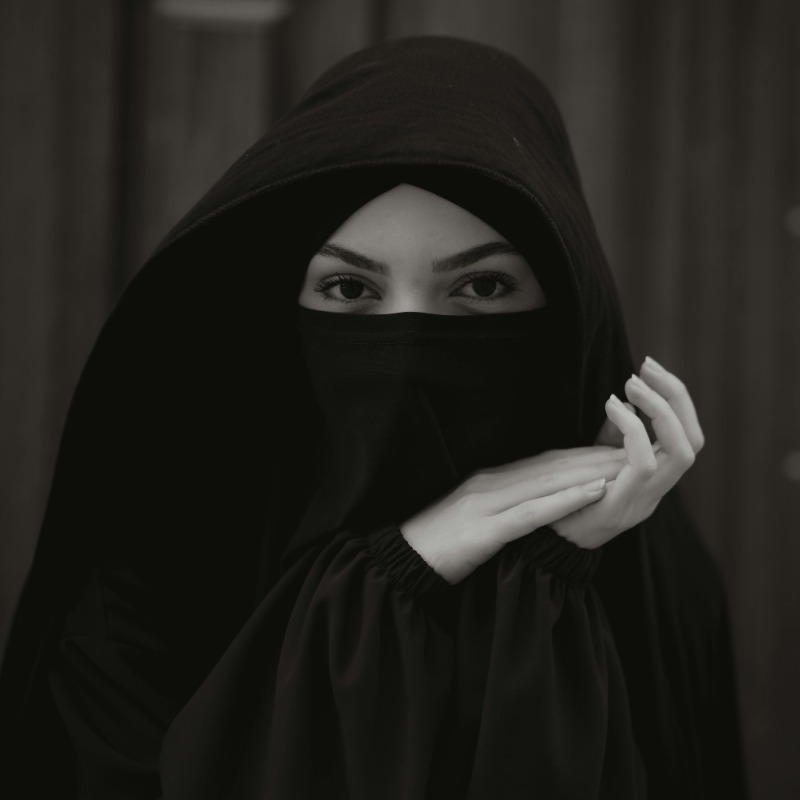

Nasir Khalilurahman, Jamia Ahmadiyya International Ghana
“He is our leader, who is the source of all light; His name is Muhammadsa; he alone is my beloved.” (The Promised Messiahas—The Essence of Islam, Vol. 1, p. 327)
The various aspects of the life of the Holy Prophetsa are all so sublime that, in the matter of choice, a writer on the subject soon finds himself baffled, and selection becomes very nearly impossible. However, I wish to take up that side of the Holy Prophet’ssa life, which concerns the way he led an exemplary life in the treatment of his spouses at a time when women were in the position of slaves, possessing no form of freedom or rights whatsoever.
Before the advent of the Holy Prophetsa, women were in such a state in which she was not the owner of her property, her husband was regarded as the owner of her property, she did not have a share in the property of her father, nor could she inherit the property of her husband. When married, she was either assigned to her husband for good as his property, and in no circumstances could she be separated from him, or in the alternative it was given to the husband to divorce her – but not given to her to separate herself from the husband – however afflicted she might have been.
Should the husband desert her, cease to discharge his obligations towards her or run away from her, there was no law to protect her. It was obligated on her to be resigned to her lot, and work for a living for both herself and her children. The husband was entitled out of bad temper, to beat his wife; she was not to raise a voice against it. Should the husband die, the wife, in some countries, fell into the hands of her husband’s relatives, who could then marry her to whomsoever they liked. In some places, some husbands would sell their wives or lose them in gambling and betting, and when they did so, they were all considered to be within their rights.
By the advent of the Holy Prophetsa, all these iniquities were wiped off with one stroke, as it were. He declared that God had particularly entrusted to him the task of safeguarding the rights of women.
He proclaimed in the name of God that man and woman by virtue of their humanity were the equal of one another, and when they lived together, just as man had certain rights over woman, so does woman possess certain rights over man.
Women could own property in the same way as men. A husband has no right to use the property of his wife, as long as the wife of her own free will, or in a manner which made it doubtful whether her natural shyness had not stood in the way of her refusal, was wrong. Whatever the husband of his own free will should give away to the wife, would be the property of the wife and the husband would not be able to take it back from her. She was to inherit the property of her parents just as well as her brothers.
The husband is always responsible for the absolute care of his wife and children. He was to exercise only appropriate discipline, but should this discipline ever take the form of punishment, he should have proper witnesses, declare her guilt, and base his judgment on evidence. Punishment was not to leave any permanent ill effects behind.
These were the teachings that the Holy Prophetsa promulgated at a time when the standards of the world were altogether opposed to it. The Holy Prophetsa of Islam not only gave these teachings, rather he showed them in an exemplary manner, as the Quran says about him that, “Verily you have in the Prophet of Allah an excellent model.” (The Holy Quran, Surah Al-Ahzab Ch.33:V.22)

The Holy Prophetsa is reported to have said that; “The best amongst you is the one who treats his wife kindly and I am the one who treats my wives in the best way.” (Tirmidhi, Kitab-ul-Manaqib)
At another place, he stated: “Everyone of you is a watcher of those in his own circle. And you will be asked about those who were under your circle.”
The Holy Prophetsa of Islam married twelve times. All the women he married were either widows or divorcees except for Hazrat Aishara. None of the women who married the Holy Prophetsa was forced into marriage. He married them of their own free will. Some of the women he married were quite old.
Hazrat Khadijara, who was much older than the Holy Prophetsa, was his first wife, and had made great sacrifices in his cause. After her death, he married younger women but never allowed the memory of Hazrat Khadijara to evanesce. Whenever any of Hazrat Khadija’s friends visited him, he would stand up to receive them. If he chanced to see any of her old belongings, or something that had any connection with Hazrat Khadijara, he was always overcome by emotion.

He often praised Hazrat Khadijara to his other wives and stressed about her virtues and the sacrifices that she had made in the cause of Islam. On one such occasion, Hazrat Aishara was piqued and inquired: “O Allah’s Messengersa! Why go on talking of the old lady? God has bestowed better, younger and more attractive wives upon you.” The Holy Prophetsa was overcome by emotion at hearing this and protested: “Oh no Aisha! You have no idea how good Khadija was to me.”
Hazrat Aishara relates that, “I did not feel jealous of any of the wives of the Holy Prophetsa as much as I did of Khadijah though I did not see her, but the Holy Prophetsa used to mention her very often, and whenever he slaughtered a sheep, he would cut some and send it to the friends of Hazrat Khadijara. When I sometimes said to him, ‘You treat Khadijah as if there is no other woman on earth except Khadijah.’ He would say, “Khadijah was such and such and from her I had children.’” (Bukhari)
He was extremely kind and fair towards his wives. If on occasion, any one of them failed to comport herself due to deference towards him, he merely smiled and passed the matter over.
The Holy Prophetsa used to visit his wives daily in their quarters. He would then go to the quarters of the wife where he was to stay for the night. In the evening, all the wives would get together in the quarter of the wife where the Holy Prophetsa was staying. After socializing for some time, they would go back to their quarters.
The Holy Prophetsa used to take good care of his wives and their sensibilities. However, their lives were very simple as was the life of the Holy Prophetsa.
Hazrat Aishara narrates that the Holy Prophetsa helped her in the daily household chores, all this over and above his duties to the whole of mankind as a prophet of God. He mended his own clothes and shoes, fetched water for his use and never sought help in these matters. This aspect of his character impressed his companions greatly.
In regards to his sense of humor with his wives, Hazrat Aishara relates that: “When the Holy Prophetsa returned home from one of the battles, the cupboard in her room was covered with a curtain. The wind blew and it displaces the curtain in the cupboard were some dolls of Hazrat Aisha were arranged. The Holy Prophetsa asked: “O Aisha! What is this?” Hazrat Aishara said, “These are my dolls.” Among the dolls, he also saw horse with two wings of paper. The Holy Prophetsa pointing to the wings of the horse asked what it was. Hazrat Aishara said, “These are its wings.” The Holy Prophetsa said, “A horse with wings?” At this, Hazrat Aishara said, “Did you not hear that the horses of Hazrat Suleiman had wings?” Hearing this, the Holy Prophetsa laughed out so loud that I could see his back teeth.” (Bukhari).
Hazrat Aishara relates that she was travelling with the Holy Prophetsa when she competed in a race with the him. Hazrat Aishara was ahead of the Holy Prophetsa. However, when she had gained some weight, they had another race in which the Holy Prophetsa was ahead of her in the race. He said, “O Aisha! I have avenged my defeat in the previous competition.”
Hazrat Aishara stated that once at the occasion of Eid, some Ethiopians were showing war tactics. The Holy Prophetsa asked her if she would like to see the jugglery. Then, he made her stand behind him, for a long time she watched the fun standing behind him while her chin was resting on his shoulders and her cheeks were touching his cheeks. He stood while bearing her weight on his shoulders until she got tired. Then he said, “It is enough, you should go home now.” (Bukhari).
The Holy Prophetsa was once returning from the battle of Usfan. Hazrat Safiyyah, his wife, was riding the camel with the Holy Prophetsa. When the camel stumbled, both of them fell off the camel. Hazrat Abu Talhara rushed to support the Holy Prophetsa. However, the Holy Prophetsa said, “Take care of the woman.” (Bukhari)
Although there are reports of Hazrat Aishara and some of his other wives losing their temper with him, never once is he reported to have retorted in the same way. He is never known to have addressed them harshly.
Hazrat Umarra relates that, “My wife occasionally sought to intervene in my affair with her counsel and I would admonish her, saying that the Arabs had never permitted their women to intervene in their affairs.” She would resort: “That is all past. The Holy Prophetsa let his wives counsel him in his affairs and he does not stop them. Why do you not follow his example?”
The Holy Prophetsa said that, “Be ever mindful of the duty you owe to Allah in respect of your wives. You have married them with the guarantee of Allah’s name, and you have made them lawful for yourselves in accordance with Allah’s word. So be mindful of your covenant. They owe you fidelity; for any default on their part, you may correct them gently. You owe them suitable maintenance.”
By Maulvi Nasir Khalilurahman, Missionary Jamaat Nigeria









